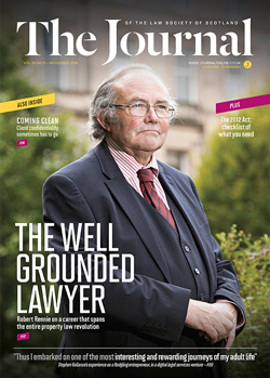The right kind of risk

Courage is willingness to take the risk once you know the odds. Optimistic overconfidence means taking the risk because you don’t know the odds. It’s a big difference.” (Daniel Kahneman, Nobel Prize winner and the founder of behavioural economics.)
Colonel Bob Stewart DSO, British Commander of UN forces in Bosnia 1992-93, and now in a marginally less hazardous position as Conservative MP for Beckenham, is one of the most remarkable men I have met.
He arrived in the Balkans armed with a typically decisive briefing from Prime Minister John Major: “Can you do the best job you can, Colonel Stewart?” Bob Stewart’s best was inspiring. His outstanding qualities of courage, charisma, warmth and humanity shone through.
But as he says, these would have counted for little had he not allied them to a clear sense of mission and an effective strategy for achieving it. First commissioned into the Cheshire Regiment, no doubt he remembered the dictum of his county’s famous cat: “If you don’t know where you’re going, any road will get you there.”
As soon as he landed, he asked three questions: What needs to be achieved? What tasks are crucial to that? What resources/constraints apply? He had the answers on paper (the first was, “to save lives”) within four hours. It is interesting to contrast his speed of thought and action with the way law firms typically approach these questions: forming committees, taking soundings, deliberating for months, before producing a paper the weight of a small hatchback, much of which is never referred to again.
The concept of business strategy derives from military strategy, and on this topic the leading US corporate consultant Roger L Martin makes two insightful points. First, the primary purpose of the process I have just described is to eliminate risk. This is a fool’s errand. Fundamentally, strategy is a bet. Costs are a matter for us, but revenue is up to the clients, and we cannot control their choices. Risk is ever present, something lawyers find it hard to live with. The typical lawyer is highly intelligent, but tends to be cautious, suspicious, analytical to a fault and terrified of personal failure. These qualities make great advisers, but poor entrepreneurs. They explain why so many of us struggle not with doing the work, but competing effectively in the marketplace.
The second point Martin makes is that strategy and management are not the same, but are often confused. Once we have decided the strategy, effective management is essential to implement it – setting goals, getting buy-in, assigning responsibilities, measuring outcomes and adapting as necessary. This may involve a mountain of detail, but all of it is a means of achieving strategic objectives, not the strategy itself. It is a truth not universally acknowledged, but illustrated dramatically by Bob Stewart, that if a strategy cannot be articulated in a few concise sentences, it is probably not any good.
In a commercial context, his three questions can be reduced to two: “Where do we play?”; and “How do we win?” The first means, “What markets should our firm be in now, and what markets should we aspire to be in?” The second means, “How do we stand out?” What informs clients’ buying decisions and to what extent? Is it black-letter competence? Service and client experience? Strength in depth? Price? Geography? Personal chemistry? Sleek hair? (OK, maybe not the hair.)
Risk-free strategy is an oxymoron. Whatever road you choose will have its ambushes. Successful business leaders acknowledge that reality, do all they can to minimise it, but embrace and even relish the angst.
In this issue
- Age before duty
- Title to tissue
- Standing the test of time?
- Adjudication: a risk of abuse?
- Courts in all but name
- When is a person a “relevant person”?
- Reading for pleasure
- Opinion: John Scott QC
- Book reviews
- Profile
- President's column
- People on the move
- The designated day is here
- A tale of two systems
- LBTT: the rules and rates emerge
- The price of probity
- Play to your strengths
- Into the unknown
- A changing landscape
- Get the basics right
- Holiday pay: give us a break
- Money into thin air?
- Pathways to justice
- Flesh on the bones
- Scottish Solicitors Discipline Tribunal
- Streams of thought
- Over the finishing line
- Over the finishing line (full version)
- Law reform roundup
- The path less travelled
- The right kind of risk
- Frauds and scams – increasing awareness
- Ask Ash
- The process engineer's tale
- To disclose or not to disclose?






